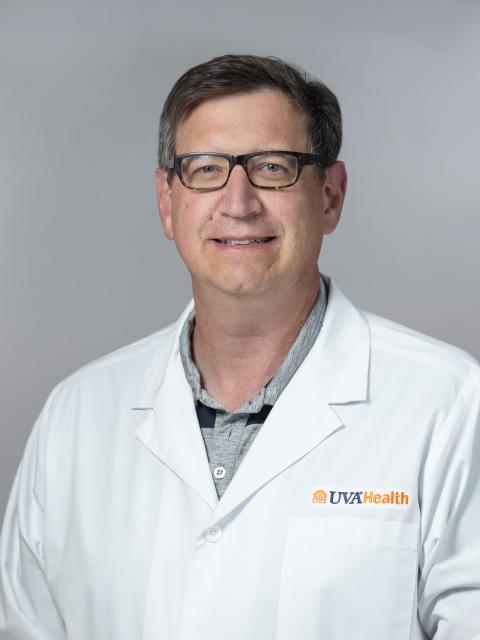
David B Weiss, MD
Orthopedic Trauma Surgery
Additional Locations
Bio & Overview
David Weiss, MD, is an orthopedic trauma surgeon. He provides care for complex fractures of the clavicle, humerus, pelvis, femur, knee tibia, ankle, and foot. He also treats malformed, shortened, or unhealed arm, hip, leg, and foot fractures and bone infections.
Weiss earned his medical degree at Georgetown University. He completed his orthopedic surgery residency at the University of Michigan and his orthopedic trauma fellowship at Harborview Medical Center in Seattle. He spent three years as an active duty U.S. Air Force flight surgeon stationed at McConnell Air Force Base in Wichita, KS.
He has a lifelong interest in teaching and education, which he fulfills by working with residents and medical students.
Outside of work, Weiss enjoys flying, trail running, biking, skiing, and spending time with his wife and three boys.
Organizational Involvement/Memberships
- Academy of Orthopaedic Surgeons
- AO Trauma Foundation
- Health Volunteers Overseas
- National Ski Patrol
- Orthopaedic Trauma Association
- Southeastern Fracture Consortium
- Virginia Orthopaedic Society
Academic Information
- Academic Role
- Professor
- Research Interests
- Fractures of the proximal and Distal Tibia
- Gender
- Male
- Languages
- English
- Age Groups Seen
- Adults (21-65)
Older Adults (65+)
- Residency
- University of Michigan Health System
- Fellowships
- Harborview Medical Center
- Certification
- American Board of Orthopaedic Surgery (Orthopaedic Surgery)
Highlights
Dr. David Weiss profile video
DAVID WEISS: My name is Dr. David Weiss. I'm an orthopedic trauma surgeon at the University of Virginia Health System. And I'm the director of the orthopedic trauma division. In orthopedic trauma, sort of all we do is challenging fractures. We really work on getting people's fractures fixed properly and getting them back to their life. The types of treatments or procedures that I'm known for personally have to do more with reconstruction in the lower exterminate, the knee, the tibial plateau, which is the bone just below the knee joint and also, the end part of the tibia bone and the shin bone just above the ankle. We do a lot of work with reconstruction in that area. Probably the most common question or concern I get from my patients is really-- they're going to ask, am I going to go off of the metal detector of the airport? Most of the patients don't actually have enough metal to set off metal detectors. But I think it's a question that sort of illustrates a concern about their-- you know, their recovery, like what is my recovery going to be like? What do I have to worry about on a day-to-day basis? I tell patients that I don't necessarily expect them to be 100% of where they were beforehand. But I do expect them to be very functional, meaning that they can do most, if not all, of the activities that they want to do, reassure them or give them guidance that their life may be different, but it won't necessarily be bad. And it can often be very good. I want them to know that I'm really on their side, that my job is to really get them through their recovery process. And I want them to get back to their lives in as full a way as possible.
Awards
- 2015-2020 Best Doctors in America® List
- 2018 Best Bedside Manner Awards, OurHealth Charlottesville and Shenandoah Valley Magazine; Honorable Mention, Orthopedics
- 2004 Leonard Marmour award for outstanding Orthopaedic resident
- 2004 Orthopaedic resident research award
Reviews
311 Patient Satisfaction Ratings
Our patient satisfaction ratings are an average of all the survey responses to the below questions a provider got within the past 2 years. To protect your privacy, patients aren't identified.
See more about our patient satisfaction surveys .